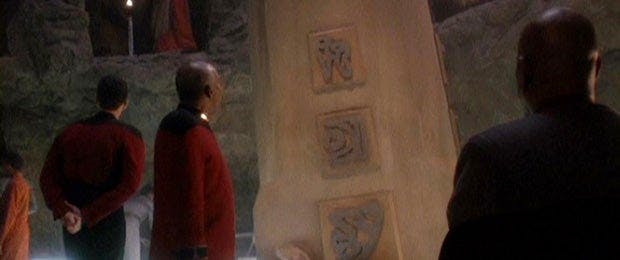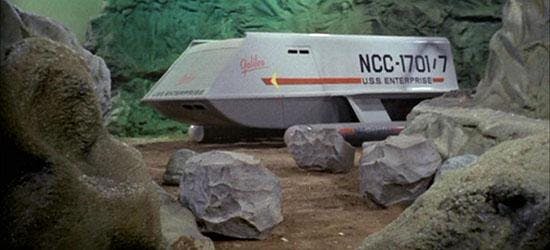Published Aug 26, 2014
The Study of Humanity: Trek Edition, Pt. 1
The Study of Humanity: Trek Edition, Pt. 1

When most people think of anthropology, images of Indiana Jones or Stargate SG-1’s Daniel Jackson come to their mind. Trekkies and Trekkers might think of Dr. Barron from the Star Trek: The Next Generation episode “Who Watches the Watchers” (S3E4). As students of anthropology, enthusiastic Trekkies and science fiction fans, we cannot help but wonder: do these characters provide accurate representations of what anthropologists do in real life?
In order to answer this question, we will examine anthropology and how it is portrayed in the Star Trek universe. In this first installment of a three-part series, we discuss the few occurences in which our discipline is mentionned in episodes from various Star Trek TV series. In the interest of brievity, we set aside the expanded universe, which includes movies, comics, books and video games. We hope to expand our analysis to these in the future, and should readers wish to discuss examples from the expanded universe, we would be happy to do so in the comments sections.

So what’s anthropology anyway?
We’ll give you the short version of that story: "anthropo" refers to man, humankind and "logy" refers to knowledge, the study of, science.
In other words, anthropology is the study of humans. Let’s examine the definition provided by the American Anthropological Association (AAA) of this discipline a little closer. In North American tradition, it is considered to have four branches: linguistic anthropology, archeology, socio-cultural anthropology and biological (also called physical) anthropology.
Linguistic anthropology is the study of languages and how they both reflect and impact culture. Archeology is the study of the past of humans: that’s right, ladies and gentlemen, Captain Picard is one of us! Socio-cultural anthropology is the study of cultures and relies heavily on participant observation in the field, that is long-term involvement in a research context to produce first-hand knowledge. Last but not least, biological/physical anthropology examines the biological origins of humans and their biological adaptation to their environment, among other things. A correlary science, primatology (the study of primates) is well known to the public. You may also know a little bit more about this branch of our discipline if you watch Bones, although most anthropologists would insist that their job has nothing to do with what you see on the show.
This short description is blunt and rather caricatural, but you get the picture. And you can read more about our discipline on The Geek Anthropologist, where we both blog regularly, or consult the AAA webpage to learn more.
Archeology is perhaps the branch of anthropology which enjoys the highest visibility in Star Trek. Picard himself is an enthusiast of this discipline, Vash appears in TNG and DS9 episodes, and Bajoran ruins are said to be the object of archeological investigation in several DS9 episodes. Yet, archeology is not presented as being closely related to anthrology. Instead, anthropology is mentionned on very few occasions, and generally only briefly, as it is in episodes ‘’The Galileo Seven’’ (TOS S1E13), ‘’The Game’’ (TNG S5E6), or ‘’Bliss’’ (VOY S5E14).

One TNG episode, however, “Who Watches the Watchers” (S3E4), is centered around a team of anthropologists. In the second installment of this series -- look for it tomorrow -- we will discuss the episode, and compare the representation it gives of anthropology and anthropologists with the current state of our discipline.
Do you know of other examples of representations of anthropologists in the Star Trek universe? Feel free to discuss them here!
__________
Marie-Pierre Renaud is graduate student of sociocultural anthropology in Laval University, Quebec, Canada. She specializes in native studies and her work focuses on healing and reconciliation processes. As the founder and a co-editor of The Geek Anthropologist blog, which is dedicated to the anthropological study of geek culture and all things geek, she writes about women in geek culture, the representations of indigenous peoples in science-fiction, and the changing definitions of geekiness. She can be reached at thegeekanthropologist[at]gmail.com.
Rayna Slobodian is currently an Undergraduate student in anthropology at York University in Toronto, Canada. Her love for Star Trek is genetic, as she was named after the android from the TOS episode, “Requiem for Methuselah.” The human story has always fascinated her, especially when it comes to exploring life through imagination. Her anthropological interests include death studies, human factors in space, classism, ethics, and science and technology studies. Feel free to reach her at rayna.ca[at]gmail.com.

